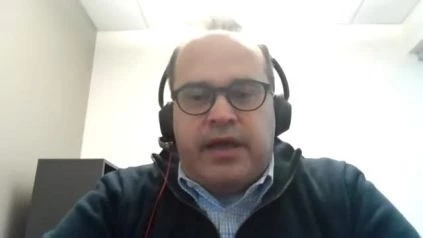Flavio G. Rocha, MD, FACS, FSSO from the Division of Surgical Oncology, Knight Cancer Institute, Oregon Health and Science University, Portland, OR speaks about the Landmark Series: Immunotherapy and Targeted Therapy for Pancreatic Cancer.
SUMMARY
Despite multimodality treatment, pancreatic cancer remains one of the most aggressive gastrointestinal cancers. Carcinogenesis is primarily induced by main driver mutations that can be targeted for oncologic therapy, according to genomic studies published in the last few years. Furthermore, advances in cancer immunology have identified receptors and monoclonal antibodies that can be used to manipulate the immune system of the host to treat cancer. Several cancer forms, including those of the gastrointestinal tract, have seen a paradigm change as a result of these techniques. However, there are many considerations to consider when applying the findings to pancreatic cancer, including the thick, fibrotic stroma that is specific to this disease and can protect cancer cells from cytotoxic and immunologic agents. Despite the fact that the majority of trials have been conducted in the metastatic environment, this analysis will concentrate on both the historical studies that have characterized this area and the emerging data resulting from ongoing efforts to exploit newly discovered mutations and druggable targets.

